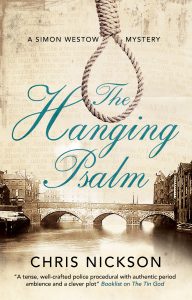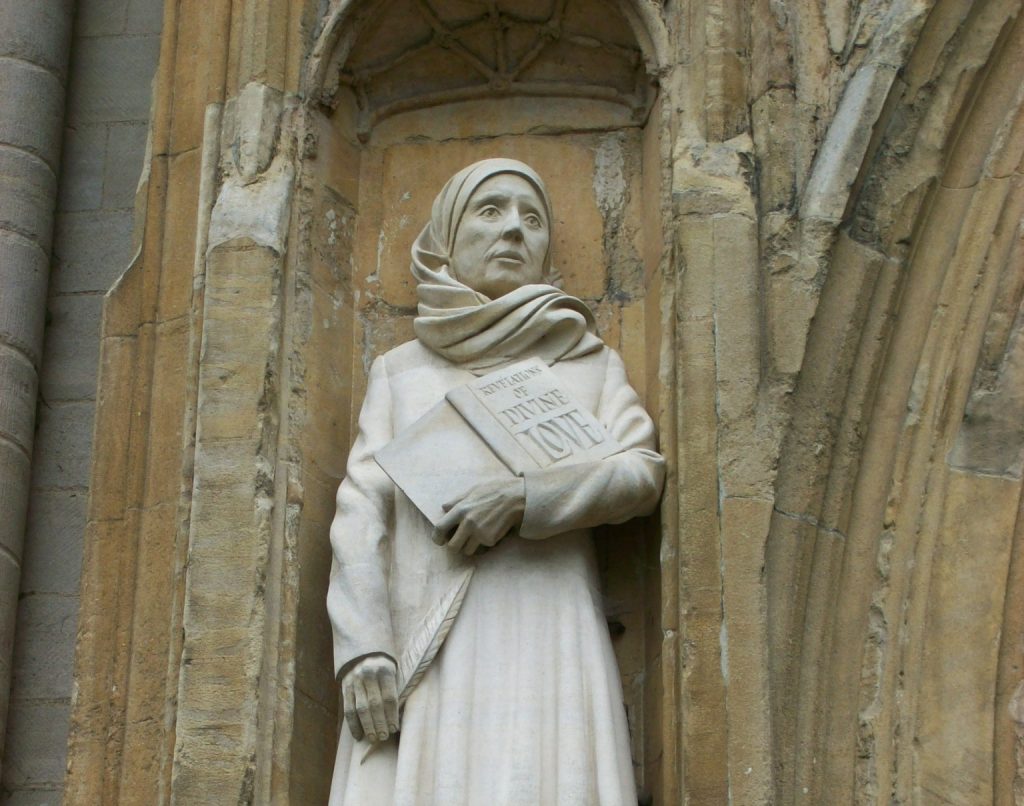Ever heard of an anchorite before? Beeston has a history of them. Chris Nickson tells us about this forgotten piece of Leeds’ history. His new book The Hanging Psalm is out at the end of September. You can take part in a treasure hunt and come along to the book launch too!
According to the Domesday Book, in 1086 Beeston was ‘waste,’ like so many other manors around Yorkshire, probably another victim of William the Conqueror’s terrifying Harrying of the North which left so much of the area in ruins. At that time, no church was recorded there. A couple of centuries on from that, though, not only was there a chapel, very likely dedicated to St. Leonard, but also an anchoress, one of a line of them that apparently stretched for a couple of centuries.
An anchorite was a person, very often a woman, who was willingly walled into a small space called a reclusory, usually attached to a church or chapel, and spent the rest of her life there, in prayer and meditation, giving spiritual advice to visitors and receiving food and other supplies through a single small hatch. There was no door, no way out. This isolation was believed to be the highest kind of calling, and within the community an anchorite would be venerated.
We have no idea when the first anchorite appeared in Beeston, but St. Leonard’s included some pieces of masonry taken from a Norman church, and dated to around 1130, so it’s reasonable to assume that the earliest chapel on the site dates from that time (these pieces can still be found in an archway in the present St. Mary’s Church on the same site).![Image of St Mary's Church by Chemical Engineer [CC BY-SA 4.0 (https://creativecommons.org/licenses/by-sa/4.0)], from Wikimedia Commons](https://www.bigbookend.co.uk/wp-content/uploads/1024px-St_Marys_church_Beeston_7_May_2018_2-300x225.jpg)
Certainly by the middle of the 1200s an anchorite had been well-established there. In 1257, permission was given to demolish the reclusory and build a new anchor cell away from the church. By 1294, though, it would appear that the small anchorite’s space had been rebuilt as part of the chapel’s fabric, with John le Romeyn, Archbishop of York, giving permission for “a woman anchorite enclosed” (note it was a woman specifically). Her name was Dionisia of Barnby (very probably a tiny parish near Scarborough). There seems to be no record of her death, but records show that in 1322 the cell was occupied by a nun from York, Joan de Terry. Others certainly followed.
 Having an anchorite brought status, bequests and money to a church. At least one 14th century anchoress, Julian of Norwich, found fame in the 20th century with her book, The Revelations of Divine Love, being translated into many languages.
Having an anchorite brought status, bequests and money to a church. At least one 14th century anchoress, Julian of Norwich, found fame in the 20th century with her book, The Revelations of Divine Love, being translated into many languages.
No one from Beeston has been remembered through the years. But the chapel was still receiving bequests in 1454, indicating there might still have been an anchorite in a walled cell then.
 Chris Nickson is the author of several historical crime novels set in Leeds. His new book, The Hanging Psalm, will be published on 28 September .
Chris Nickson is the author of several historical crime novels set in Leeds. His new book, The Hanging Psalm, will be published on 28 September .
Leeds, 1820. Thief-taker Simon Westow knows all about lost property. A boy from the workhouse, he now has a comfortable business finding and returning his clients’ stolen possessions. But when John Milner, a successful Leeds businessman, seeks out Simon’s services to find his kidnapped daughter, Hannah, it’s clear he faces a challenge like no other.
Accompanied by his enigmatic and capable young assistant, Jane, Simon takes to the dark, shadowy streets of Leeds for information – streets he knows like the back of his hand. But his enquiries lead Simon and Jane into great danger. Could the answers lie in Simon’s own past, and an old enemy seeking revenge?
Event
The publication will be accompanied by a treasure hunt in Leeds city centre, in association with #foundfiction. Follow the clues, find all five extracts from the novel, post them on social media and you might win a copy of the book!
On the morning of Saturday 29 September, Chris Nickson will publish a map with an X in the location of the first extract, which will contain a clue to the whereabouts of the second, and so on, until the finder has managed to trace all five extracts. The first person to find every extract will win a free signed book.
The full launch will take place at Waterstones Leeds at 6.30pm on Thursday 4 October.
The Hanging Psalm is the Editor’s September Pick at Severn House. Read more here.

